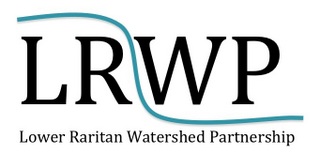Earth Overshoot Day 2021
By LRWP #lookfortheriver Outreach Coordinator Anjali Madgula
Timescales
When we talk about human caused climate change, often we are talking about time. How much time does it take for a global ecosystem to undergo significant change? How much time does it take for pollution to affect a local community, a whole country, and then a global ecosystem? How much time do our plastics spend in our hands, in a landfill, in an ocean, in the stomach of a sea creature, and as a toxic substance spreading into our communities and bodies? And how much time do we have, to implement change and achieve just and sustainable living conditions for all?
Often, climate issues have to be approached in unique and creative ways because of their slow moving yet massive impacts. In his book, Slow Violence and the Environmentalism of the Poor, Rob Nixon outlines the concept of slow violence, which he defines as the “delayed destruction” that is character of climate disasters that span over decades and centuries, occurring through everyday toxic buildup and greenhouse gas emissions. Unlike violence that is immediate, visible, and sudden, the slow violence of environmental degradation is much more difficult to draw attention to in everyday media, despite being seriously capable of damage. Nixon writes, “How can we turn the long emergencies of slow violence into stories dramatic enough to rouse public sentiment and warrant political intervention, these emergencies whose repercussions have given rise to some of the most critical challenges of our time?” (Slow Violence, 3).
Earth Overshoot Day
People across disciplines are using narratives, statistics, and actions to make visible the long term scale of the climate crisis alongside the need for carbon heavy countries to decarbonize and transform their infrastructure in the immediate present. In 2006, an organization called Global Footprint Network created the concept of Earth Overshoot Day. Earth Overshoot annually calculates the calendar date for when the amount of our resource consumption for that year exceeds the amount of the Earth’s biocapacity (the amount of resources generated by Earth that year). The GFN’s work showcases the climate story across the human and nonhuman in the unique frame of just one year’s biocapacity and consumption.
In the past few decades, Earth Overshoot Day has moved steadily from the middle of October closer to the end of July, meaning not only that we are consistently consuming way more than the Earth generates per year but also that we are consuming more every year. Only in 2020, did Earth Overshoot Day get pushed to August 22nd due to a decrease in our annual ecological footprint from the first half of the COVID pandemic. However, in 2021, the calculations remain on par with the previous trend: Earth Overshoot Day will be on July 29, 2021.
The GFN also calculates an individual country’s Overshoot Day, which tells us when Earth Overshoot Day would fall if the whole world consumed like that country does. If everyone consumed in the manner that the United States of America does, Earth Overshoot Day would have been on March 14, 2021, just barely three months into the year.
In examining these statistics, it is important to reflect on where the onus for climate action lies and how carbon heavy countries harm countries with lower consumption rates on multiple levels, through overburdening the global climate but also by establishing industries and toxic activities in marginalized communities across the world.
Reflection through Local Restoration
Reflecting on the implications of Earth Overshoot Day during this extremely hot summer, invites me to ground myself in the work and movement building of our local communities in New Jersey and the Lower Raritan Watershed. While a global framing is essential, we can document changes in our own ecosystems and build community around stewardship and advocacy to make restoration and resilience possible. We can engage in discussions about resources, energy, and carbon emissions, by drawing attention to the specific issues and experiences of our community here. In order to have the greatest impact, it is important to have as many community members involved!
During the month of July which is marked by the 2021 Earth Overshoot Day on July 29, we can get involved with the new and continued programming of our watershed. The LRWP’s #lookfortheriver campaign has a new instagram page (@lookfortheriver) where you can be up to date with the citizen science work of the FRAMES sculpture in Boyd Park and other #lookfortheriver activities. The LRWP is also launching a stormwater management assistance program to help townships meet their federally mandated stormwater management education requirements.
These programs, amongst others, create spaces for us to navigate the global ecological crisis by protecting the ecosystems we have made a home within.
Citations
Nixon, Rob. Slow VIolence and the Environmentalism of the Poor, 2013.
“Earth Overshoot Day” , overshootday.org, July 2021.
